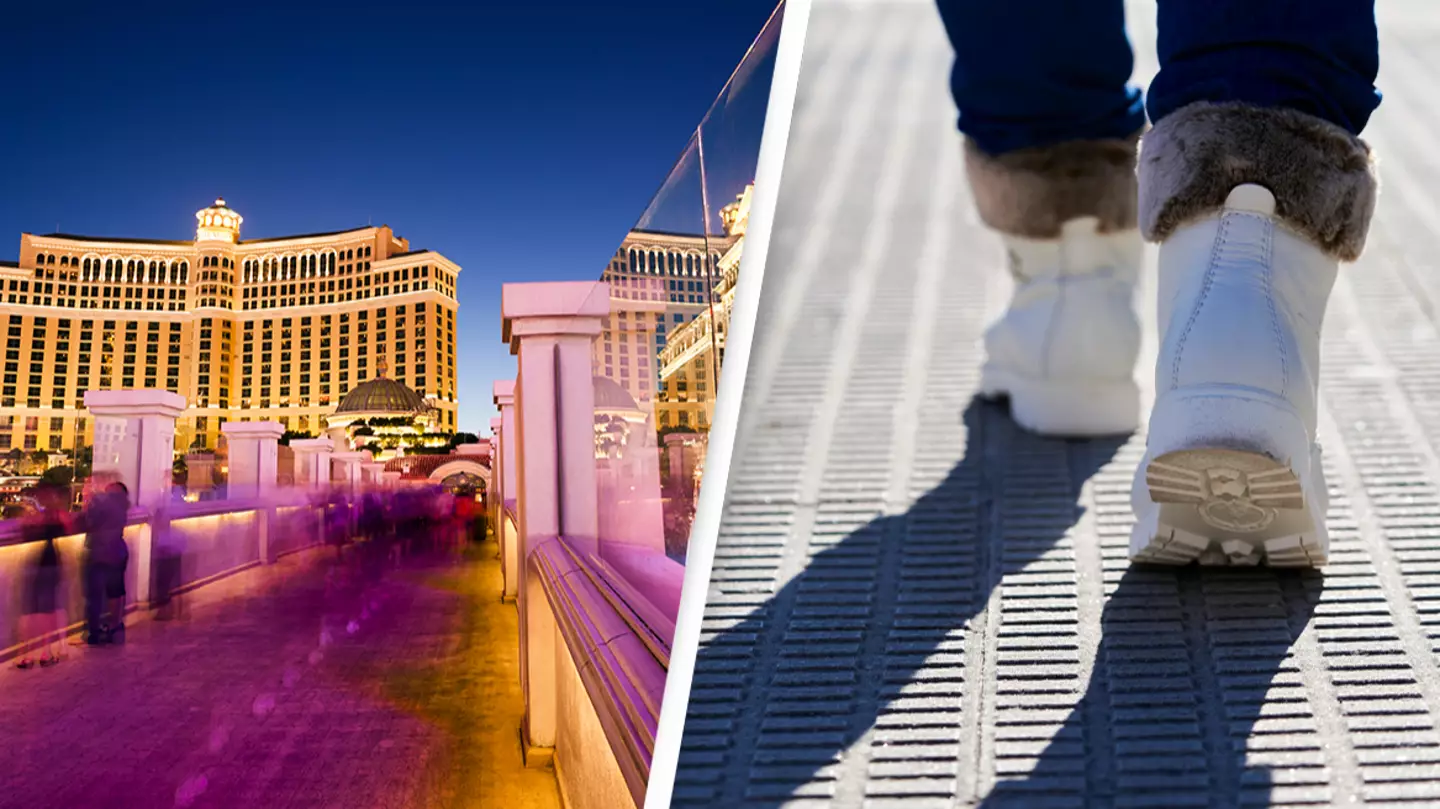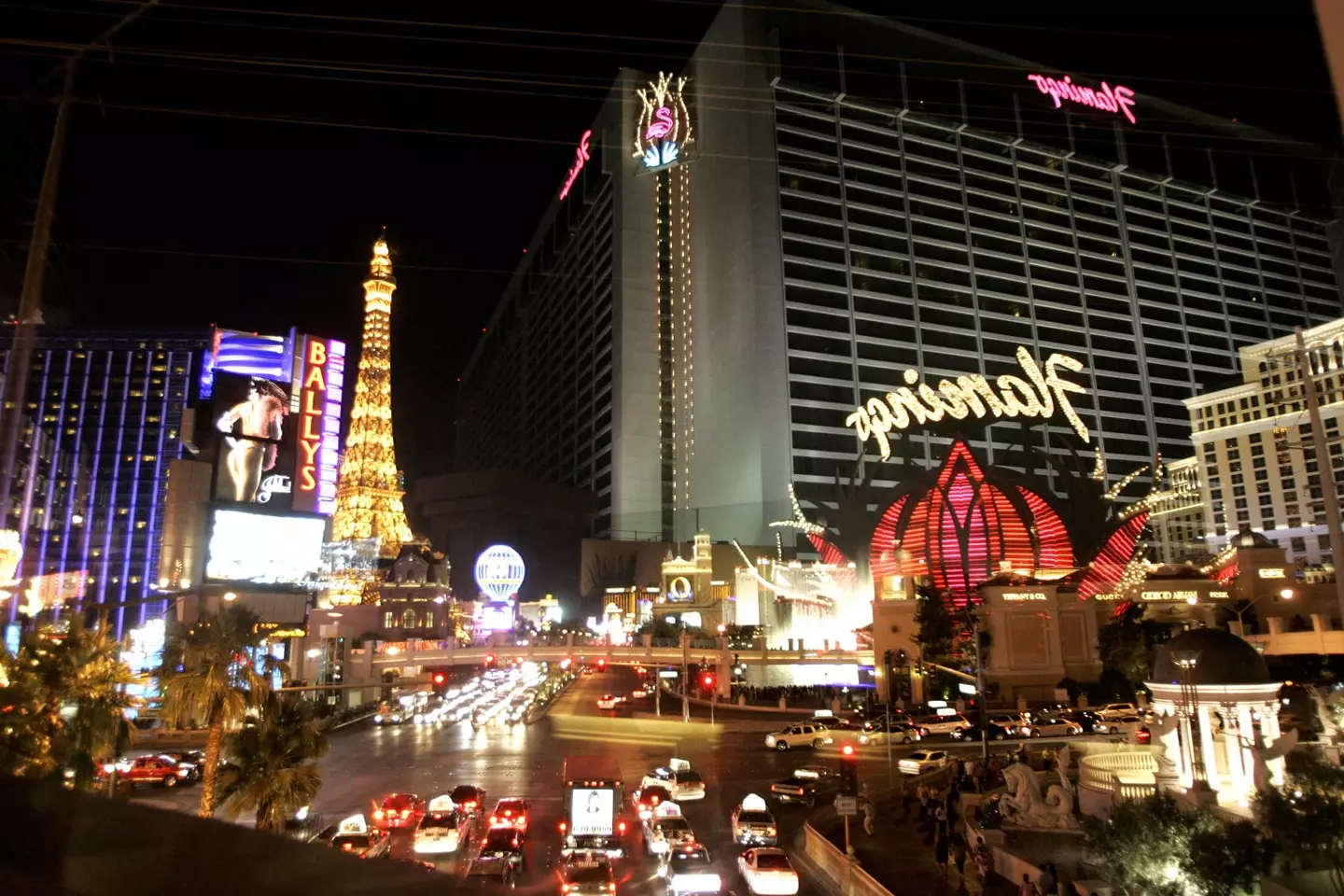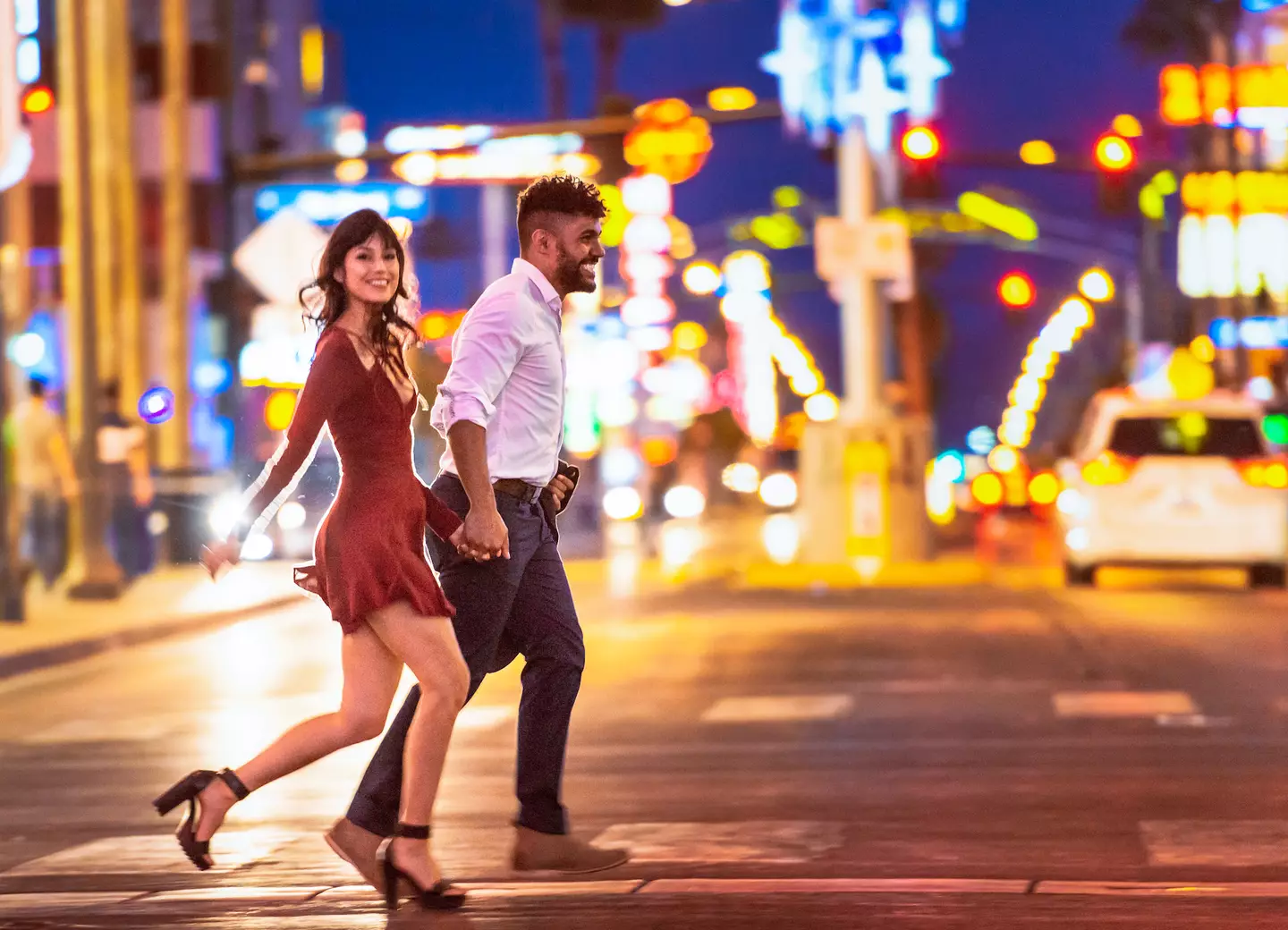
Imagine you're on vacation in the City of Sin, just simply trying to have a good time and admire your surroundings... but then boom, you end up being slapped with a fine.
And not just a small one either, but a hefty $1,000 fine.
Well, this seems like it could be the new reality for those living it up in Las Vegas.
Advert
In November last year, Clark County commissioners introduced the ordinance that is meant to prevent people from stopping on pedestrian bridges on the Las Vegas strip.
The move has even seen the support from the police as the Las Vegas Metropolitan Police Department Undersheriff Andy Walsh praised the move.
“For some time, we have been concerned about crowd crush with the events on Las Vegas Boulevard," Walsh said.
"What we see is when the pedestrian bridges get packed, it's difficult for officers to get on those bridges and maintain order."
The ordinance covers pedestrian bridges and up to 20 feet surrounding these areas.

Those who violate the ordinance by stopping in these spots can face up to a $1,000 fine or up to six months in jail.
Commissioner Jim Gibson has said the ordinance is 'clean, clear, and direct' and that the commission has to trust that LVMPD will be 'fair and equitable' in how it's enforced.
The ordinance will even affect Las Vegas Street performers, as they also won't be allowed to stop on pedestrian bridges. Officials have said they will be allowed to perform on the streets below, however.
The move appears to want to address a seeming increase in crime in these areas.
According to a study from UNLV criminal justice professor William Sousa, calls to police for 'disorder-related' incidents had seen a 23 percent increase between 2018 and 2022.

“While the bridges comprise less than 6% of the sidewalk system along Las Vegas Boulevard, 11% of disorder-related calls occurred on the overpasses,” the study said.
Athar Haseebullah, the executive director of ACLU Nevada has spoken out against the ruling, however. He has also said that city officials can expect legal action to challenge the move.
“You haven’t heard any specificity with respect to what that crime [in these areas] looks like,” Haseebullah said.
"If we say crime is up and we criminalize the act of stopping, your crime rate naturally will increase if that's put into place. This notion that crime rates are up is not actually telling."